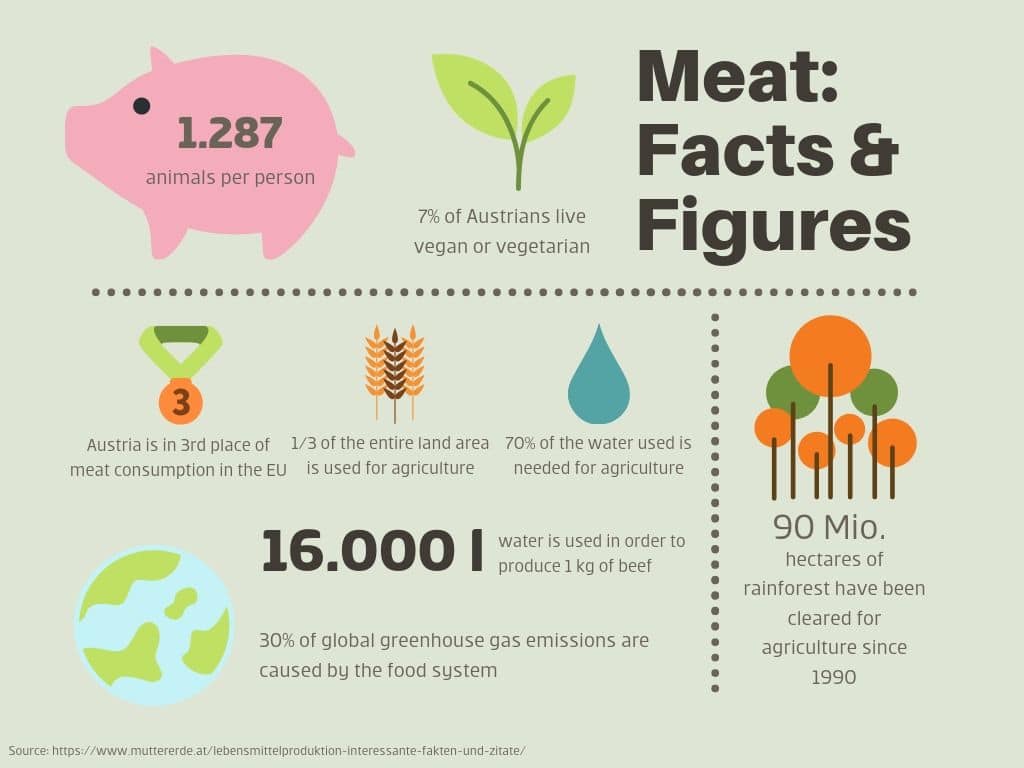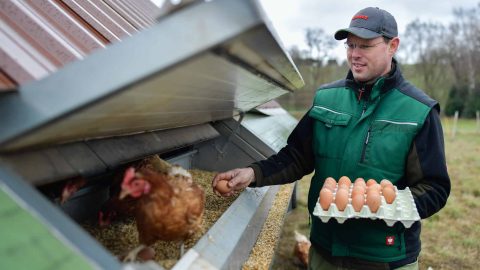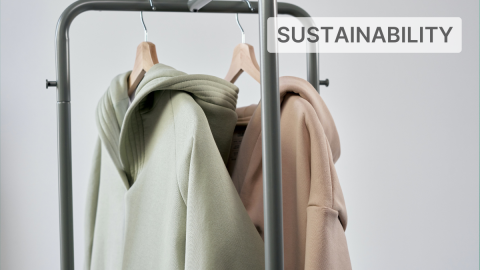Humongous amounts of greenhouse gases, high water consumption, the contamination of soil and water by excessive use of pesticides and fertilisers and by pollutants and drugs from industrial livestock breeding, and the destruction of biodiversity are only some of the points of criticism levied against conventional agriculture.
The AUGA Group, a Lithuanian company that is one of the biggest vertically integrated organic agricultural companies in Europe, has proof that things can work differently. Following crop rotation, it cultivates vegetables, mushrooms, legumes, and grain on 38,000 hectares.
The crop is processed and sold as well as used as feed for dairy cows and chickens, which in turn provide the farms with valuable fertiliser. The straw from the grain harvest is mixed with chicken manure, which makes a perfect fertiliser for growing mushrooms (i.e. the original core business of the company).
Mobile hen houses
In livestock breeding, AUGA also relies on innovative technologies that it has developed in-house. Mobile hen houses conserve the grassland and ensure species-appropriate animal housing much like the lighting systems that simulate sunrise and sunset.
On the dairy farms, the company uses mobile milking platforms so as to be able to milk the cows on the pasture without affecting the grazing routine of the animals. The power that runs the facilities is almost exclusively generated by renewable sources, partially from in-house solar and wind power plants.
At the moment, the company is also involved in the development of a tractor that runs on biogas which is sourced from the excretion of the animals. The goal is to run all agricultural equipment of the group on biogas from in-house production (i.e. from cow and chicken dung) and thus to drastically reduce the greenhouse emissions from livestock breeding.
“Fortune favours fools“
What sounds like an almost perfect circular economy from a sustainable perspective also makes sense economically. Whereas organic food yields are generally much lower per surface area – which is offset by higher prices – the company manages to achieve a surface yield similar to that of conventional farms on the back of in-house-produced organic fertiliser, innovative farming technologies, and a high degree of automatisation.
Which shows: fortune does not always favour fools.

Legal note:
Prognoses are no reliable indicator for future performance.
Legal disclaimer
This document is an advertisement. Unless indicated otherwise, source: Erste Asset Management GmbH. The language of communication of the sales offices is German and the languages of communication of the Management Company also include English.
The prospectus for UCITS funds (including any amendments) is prepared and published in accordance with the provisions of the InvFG 2011 as amended. Information for Investors pursuant to § 21 AIFMG is prepared for the alternative investment funds (AIF) administered by Erste Asset Management GmbH pursuant to the provisions of the AIFMG in conjunction with the InvFG 2011.
The currently valid versions of the prospectus, the Information for Investors pursuant to § 21 AIFMG, and the key information document can be found on the website www.erste-am.com under “Mandatory publications” and can be obtained free of charge by interested investors at the offices of the Management Company and at the offices of the depositary bank. The exact date of the most recent publication of the prospectus, the languages in which the key information document is available, and any other locations where the documents can be obtained are indicated on the website www.erste-am.com. A summary of the investor rights is available in German and English on the website www.erste-am.com/investor-rights and can also be obtained from the Management Company.
The Management Company can decide to suspend the provisions it has taken for the sale of unit certificates in other countries in accordance with the regulatory requirements.
Note: You are about to purchase a product that may be difficult to understand. We recommend that you read the indicated fund documents before making an investment decision. In addition to the locations listed above, you can obtain these documents free of charge at the offices of the referring Sparkassen bank and the offices of Erste Bank der oesterreichischen Sparkassen AG. You can also access these documents electronically at www.erste-am.com.
N.B.: The performance scenarios listed in the key information document are based on a calculation method that is specified in an EU regulation. The future market development cannot be accurately predicted. The depicted performance scenarios merely present potential earnings, but are based on the earnings in the recent past. The actual earnings may be lower than indicated. Our analyses and conclusions are general in nature and do not take into account the individual characteristics of our investors in terms of earnings, taxation, experience and knowledge, investment objective, financial position, capacity for loss, and risk tolerance.
Please note: Past performance is not a reliable indicator of the future performance of a fund. Investments in securities entail risks in addition to the opportunities presented here. The value of units and their earnings can rise and fall. Changes in exchange rates can also have a positive or negative effect on the value of an investment. For this reason, you may receive less than your originally invested amount when you redeem your units. Persons who are interested in purchasing units in investment funds are advised to read the current fund prospectus(es) and the Information for Investors pursuant to § 21 AIFMG, especially the risk notices they contain, before making an investment decision. If the fund currency is different than the investor’s home currency, changes in the relevant exchange rate can positively or negatively influence the value of the investment and the amount of the costs associated with the fund in the home currency.
We are not permitted to directly or indirectly offer, sell, transfer, or deliver this financial product to natural or legal persons whose place of residence or domicile is located in a country where this is legally prohibited. In this case, we may not provide any product information, either.
Please consult the corresponding information in the fund prospectus and the Information for Investors pursuant to § 21 AIFMG for restrictions on the sale of the fund to American or Russian citizens.
It is expressly noted that this communication does not provide any investment recommendations, but only expresses our current market assessment. Thus, this communication is not a substitute for investment advice, does not take into account the legal regulations aimed at promoting the independence of financial analyses, and is not subject to a prohibition on trading following the distribution of financial analyses.
This document does not represent a sales activity of the Management Company and therefore may not be construed as an offer for the purchase or sale of financial or investment instruments.
Erste Asset Management GmbH is affiliated with the referring Sparkassen banks and Erste Bank.
Please also read the “Information about us and our securities services” published by your bank.
Subject to misprints and errors.



